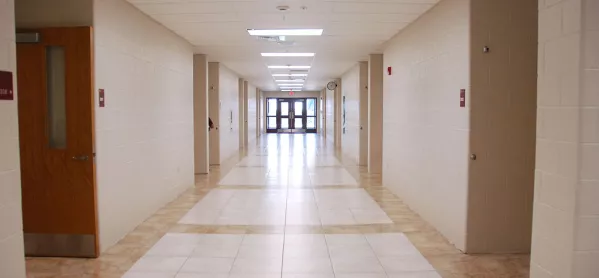A former top Department for Education civil servant has compared ”no excuses” cultures in schools to workhouses.
Jon Coles, who was director general for schools and director general for education standards, now oversees dozens of academies and independent schools as group chief executive of United Learning.
He told today’s Teaching and Learning Conference at Hampshire Collegiate School that he had concerns about strict “no excuses” disciplinary policies that a number of schools are adopting with the support of government ministers.
He said: “I think this is a really interesting phenomenon in modern education, the trend for a sort-of ‘back to the workhouse’ view of education, where things that I would not think are OK for my children are being promoted as necessary for poor children, and I think that is hugely problematic.”
He said he took it as “axiomatic” that there must be social control in a school, and that United Learning’s academies often implement a “very sharp behaviour policy”.
However, he added: “Where I part company with a lot of these practices is that sometimes they are introducing social control which is unnecessary in order to create an excellent learning environment, and is sometimes detrimental to creating an excellent learning environment.
Silent school corridors
“For example, a lot of silent corridors-type practices which are going on in schools I find highly questionable. I think that is being done for the benefit of the adults, not the children.”
He said that, as a pupil, when he left a lesson that he liked he often talked about it in the corridor with friends, adding: “Those were some of the best and most interesting learning experiences I had.”
He asked “why are we denying poor children the opportunity” to have such experiences.
Mr Coles told the audience that private schools were often praised for turning out children with very good social skills.
“Why does that happen?” he asked. “Why do they know how to behave well in conditions where the rules aren’t very clear and there’s a degree of ambiguity about what’s good and bad behaviour?
“Well, because they have to deal with that ambiguity all the time every day in their schooling because independent schools aren’t like that.”
He questioned why, in contrast, some state schools are “not creating the conditions in which [their pupils] have to deal with ambiguity some of the time”.
He added that it was helpful for schools to have a “very clear culture” where “reasonable requests get followed because the teacher is the teacher and not because it’s been negotiated, but I think we try and have the minimum level of social control necessary in order to promote an excellent learning environment”.




